Looking for that signature golden crema on espresso with your HiBREW machine? Let’s break down exactly how to get espresso crema, what factors make the biggest difference, and how to troubleshoot if your shots fall flat.
What Is Crema and Why Does It Matter?
Crema is the velvety, golden-brown layer that sits atop a well-pulled espresso shot. It’s created when hot, pressurized water emulsifies coffee oils and releases carbon dioxide from freshly ground beans, forming a stable foam. While crema looks impressive, it also enhances aroma and mouthfeel, making your espresso richer and more enjoyable.

Key Factors That Influence Crema
1. Freshness of Coffee Beans
Freshly roasted coffee beans are the foundation of great crema.
During roasting, coffee beans trap carbon dioxide (CO₂) inside. As beans age, they gradually release this gas, which is the key for forming crema. If your beans are stale, you’ll struggle to get any foam at all.
-
Use beans roasted within 2–4 weeks.
For best results, check the roast date and avoid anything older. -
Grind just before brewing.
Pre-ground coffee loses CO₂ quickly, so always grind fresh for each shot.

2. Grind Size and Consistency
Espresso demands a fine, even grind.
If your grind is too coarse, water flows through too quickly, under-extracting the coffee and producing less crema. Too fine, and extraction slows down, leading to bitter, bubbly crema or even clogging your machine.
- Aim for a finely ground coffee similar to table salt.
- Use a good burr grinder for consistent particle size—this helps ensure even espresso extraction and better crema.
3. Coffee Bean Type and Roast Level
- Robusta beans naturally produce more crema than Arabica due to higher CO₂ and oil content.
- Medium to dark roasts typically yield thicker, more stable crema thanks to increased oils and caramelization.
Pro tip: Many Italian espresso blends include 10–30% Robusta for a richer crema. Experiment with blends to find your preferred balance of flavor and foam.
4. Dose and Tamping Technique
- Dose: Use 18–20 grams of coffee for a double shot.
- Tamp: Apply firm, even pressure with a level tamper. Uneven tamping causes water to channel and reduces crema.
Consistency is key—use a scale for dosing and practice your tamping for repeatable results.
5. Water Quality and Temperature
- Filtered water with moderate hardness (50–150 ppm) is ideal.
-
Brew at 90–96°C (194–205°F).
Water that’s too hot or too cold can ruin crema formation.
6. Espresso Machine Pressure
HiBREW espresso machines are designed to deliver the recommended 9 bars of pressure—crucial for emulsifying oils and releasing CO₂ to form crema. Machines with lower or inconsistent pressure can’t create velvety crema.

Troubleshooting: Why Am I Not Getting Crema?
|
Problem |
Likely Cause |
Solution |
|---|---|---|
|
No crema or thin, pale crema |
Old or stale beans |
Use freshly roasted beans |
|
Fast, watery extraction |
Grind too coarse, under-dosed |
Use a finer grind and the right dose |
|
Bitter, dark, bubbly crema |
Grind too fine, over-dosed, over-extracted |
Use a coarser grind, reduce dose |
|
Crema disappears quickly |
Beans too old, water too soft, dirty equipment |
Use fresher beans, check water, clean machine |
|
No crema with pre-ground coffee |
Loss of CO₂ after grinding |
Grind just before brewing |
|
Weak crema with fresh beans |
Machine pressure too low, poor tamping |
Check pressure, tamp evenly |
HiBREW Tips for Rich Crema Every Time
- Grind fresh: Always grind your fresh coffee beans right before brewing.
- Clean your machine: Old coffee oils and residue can inhibit crema and spoil flavor.
- Experiment with blends: Try a small percentage of Robusta beans for thicker crema.
- Use the right basket: HiBREW’s non-pressurized baskets can produce authentic espresso crema, but if you are using pre-ground coffee, try the pressurized basket instead.
- Dial in your shot: Aim for a 25–30 second extraction for a double shot, using a 1:2 ratio (e.g., 18g in, 36g out).
When Crema Isn’t Everything
While crema is a sign of freshness and good technique, it isn’t the only marker of quality. Some exceptional coffees—especially lighter roasts or certain origins—may naturally produce less crema but taste fantastic. Focus on dialing in your grind, dose, and extraction for flavor first; crema will follow.
The HiBREW Advantage
HiBREW espresso machines make it easy to achieve luscious crema, thanks to stable pressure and precise temperature control. Whether you’re a beginner or a seasoned home barista, our machines are engineered to bring out the best in every shot. Explore our HiBREW espresso machine collection to upgrade your setup and enjoy café-quality espresso at home.

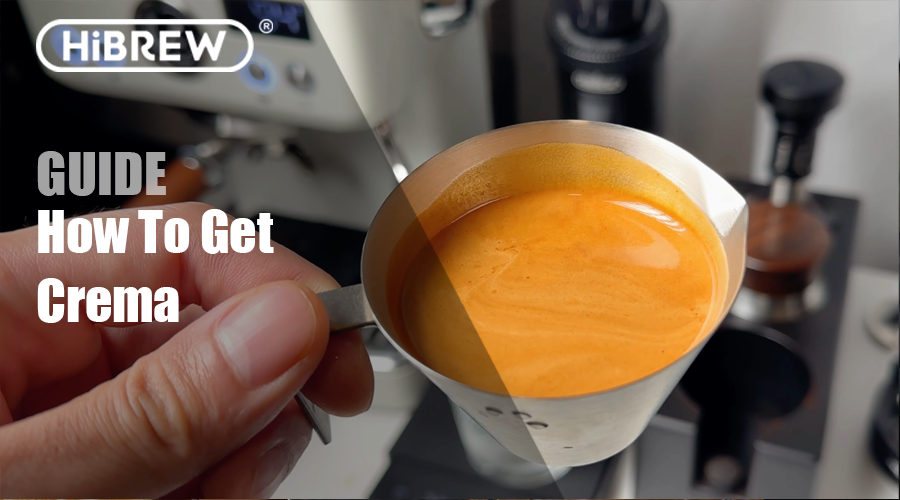
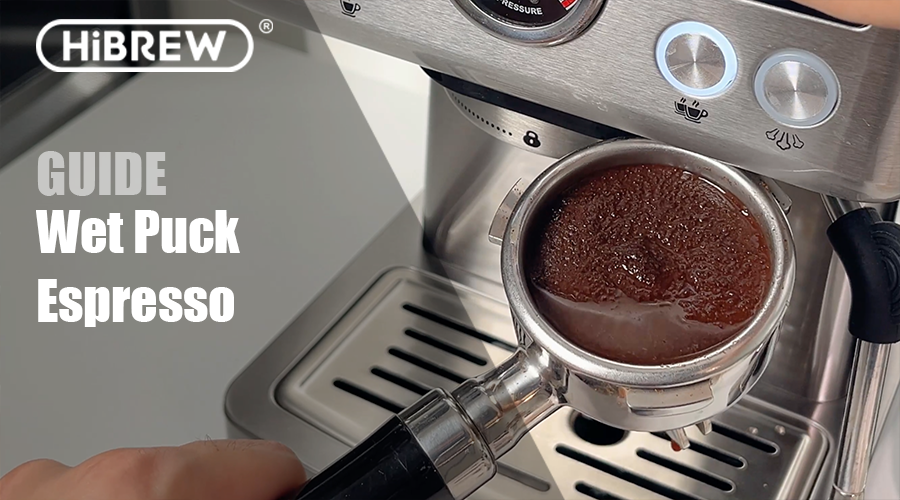
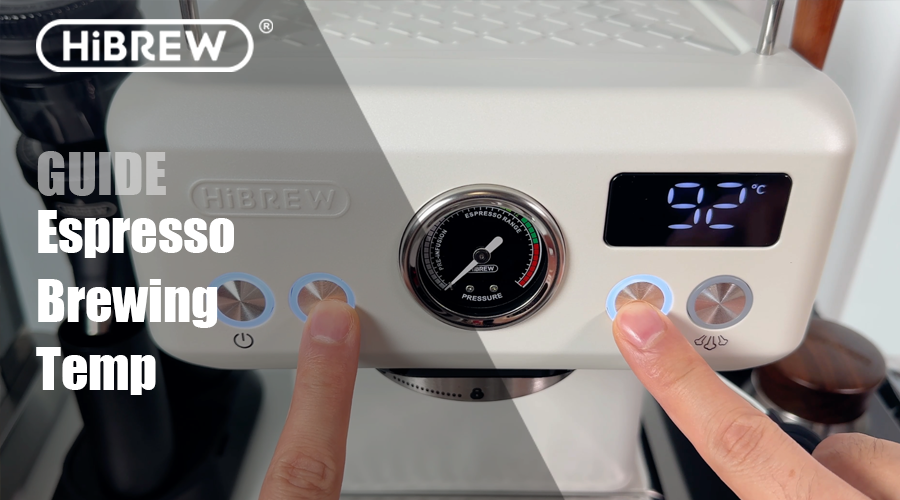
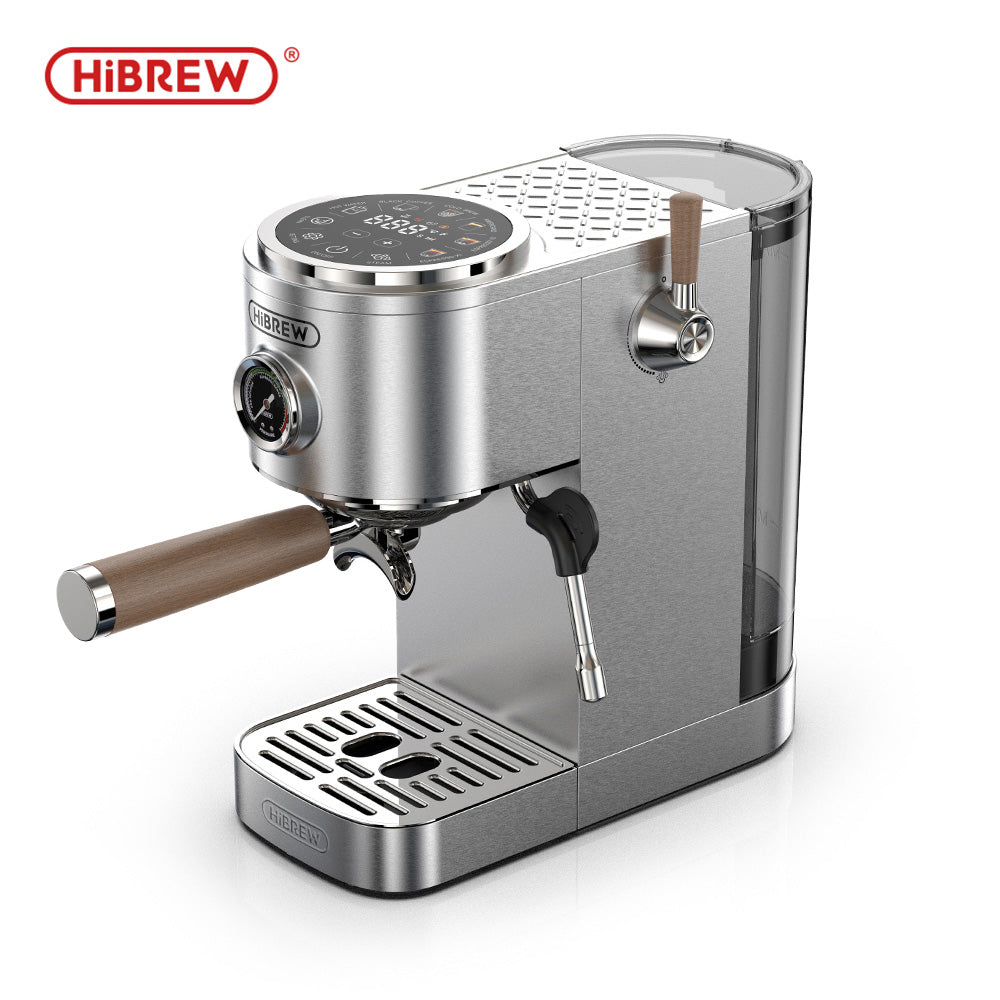

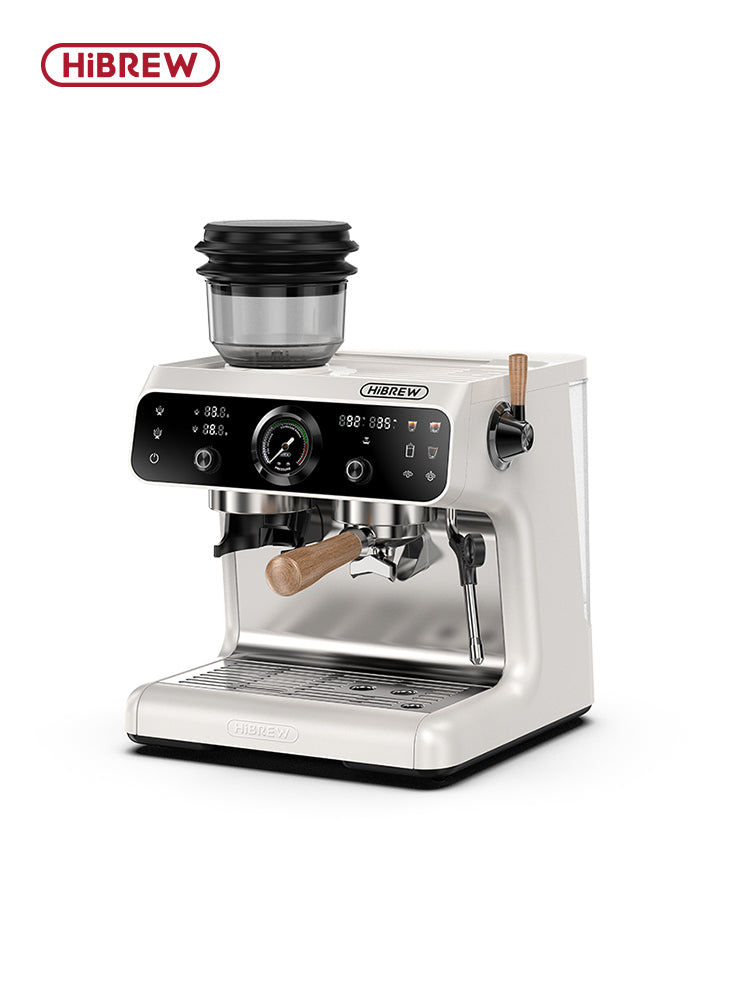
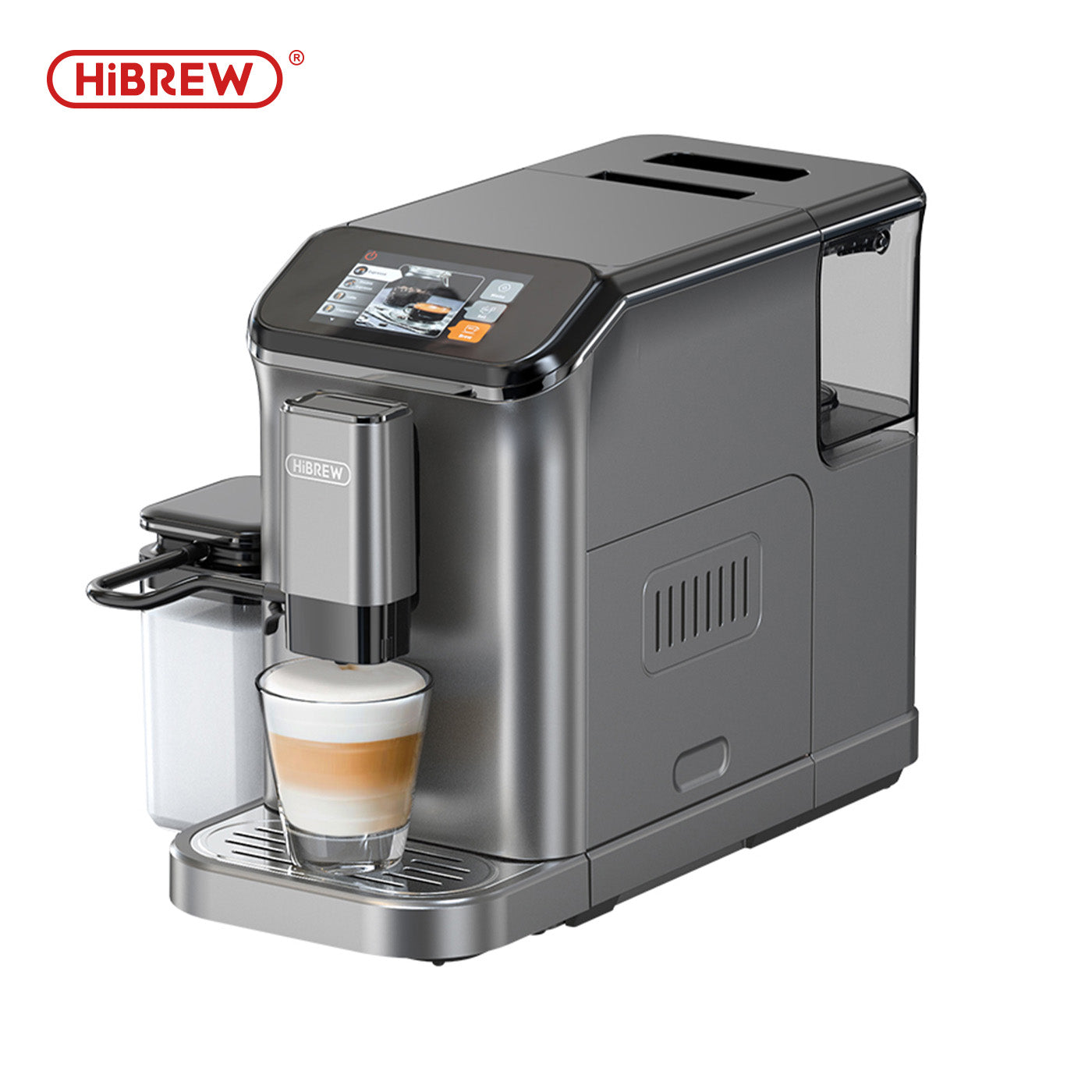
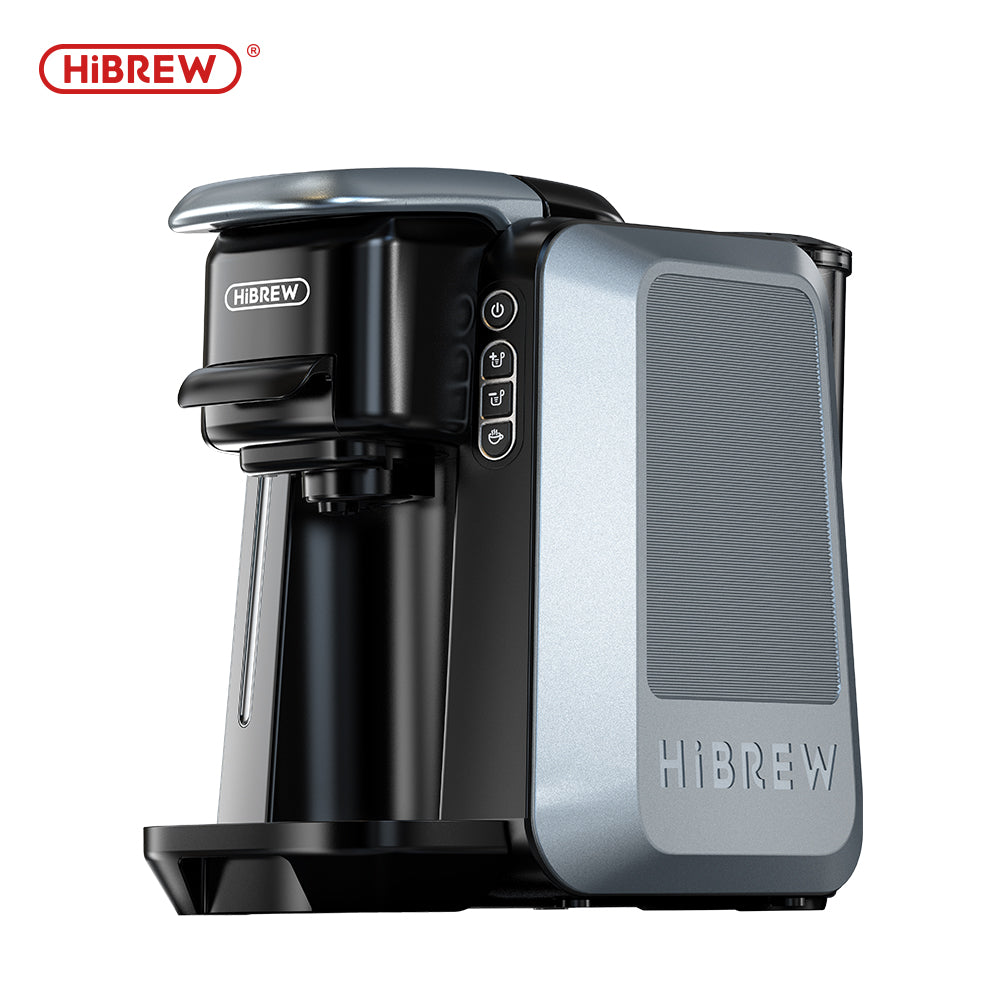
Leave a comment
All comments are moderated before being published.
This site is protected by hCaptcha and the hCaptcha Privacy Policy and Terms of Service apply.